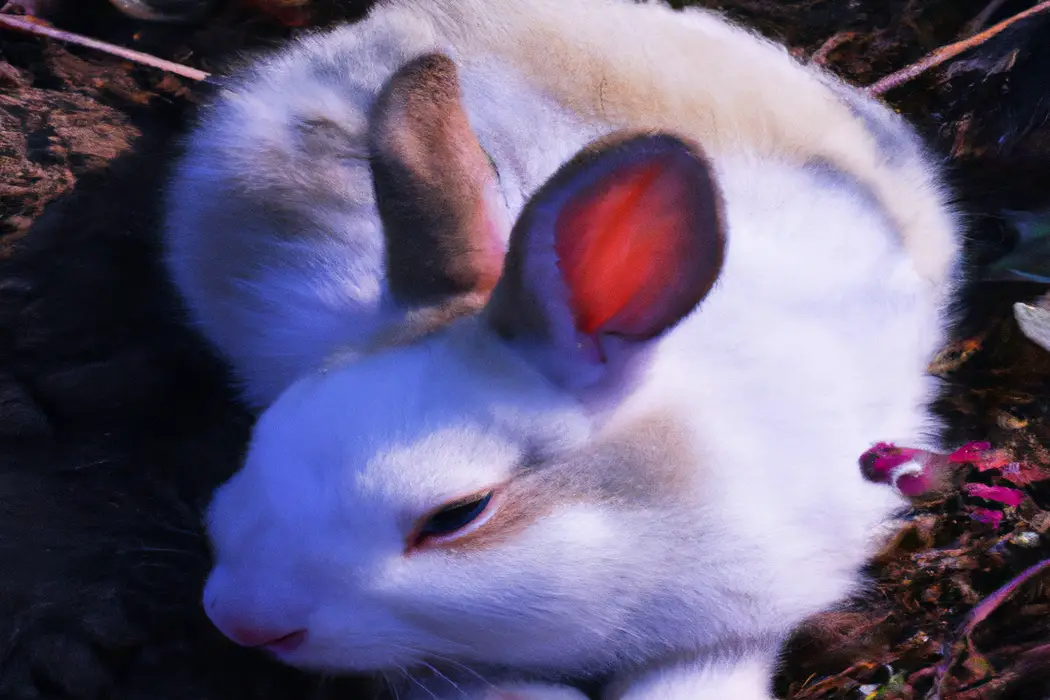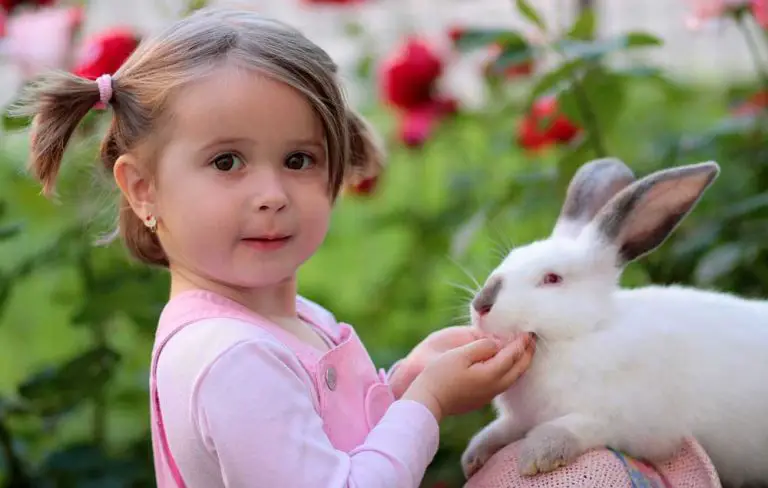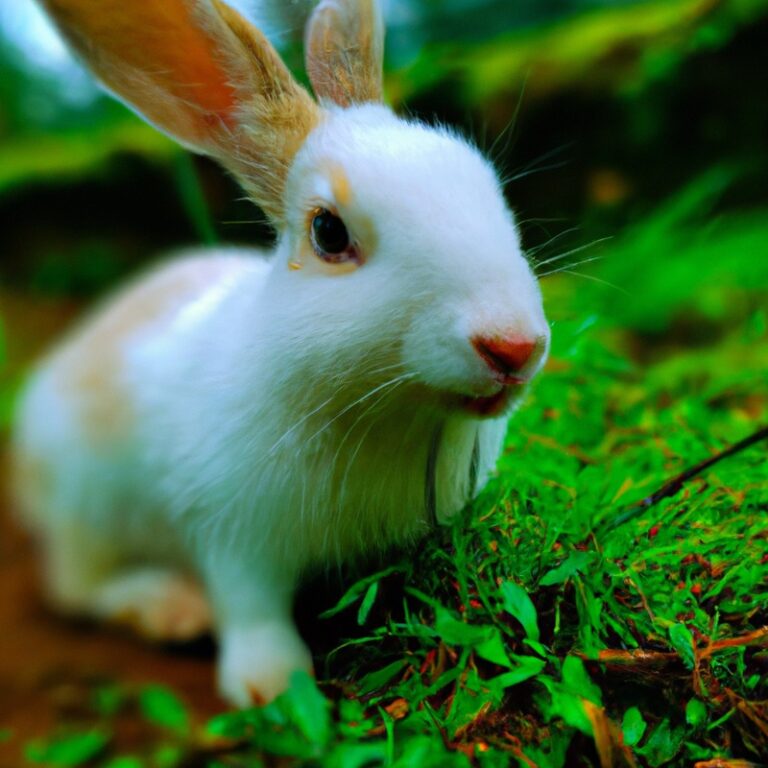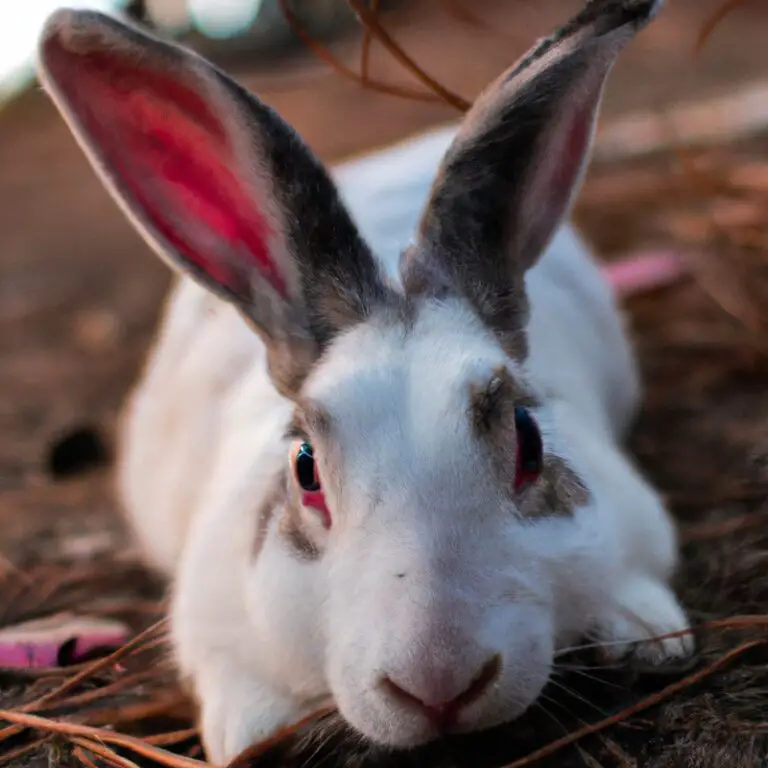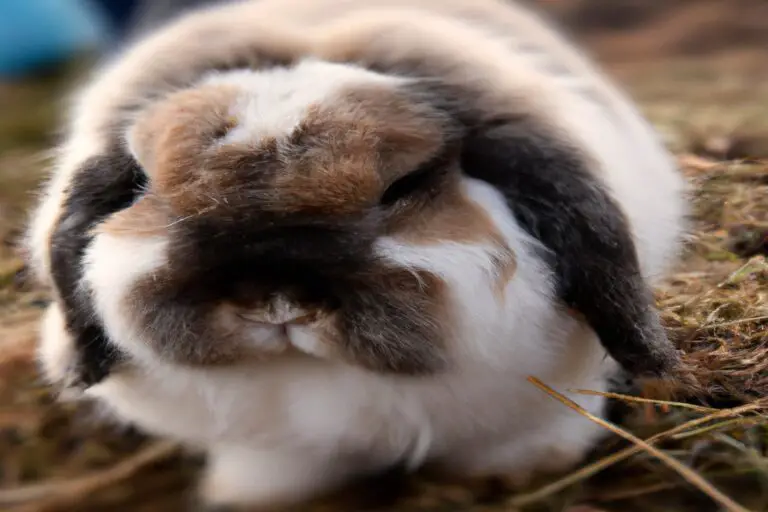How Long Can You Leave a Rabbit Alone – The Surprising Answer!
Key Takeaways:
- Rabbits should not be left alone for more than 24 hours.
- Lack of social interaction can lead to boredom and stress in rabbits.
- It is important to arrange for someone to check on and care for your rabbit if you must be away for an extended period of time.
- Consider having a companion rabbit or providing plenty of stimulation to keep your pet rabbit content when you are not around.
Have you ever wondered how long you can leave your rabbit alone?
As a responsible rabbit owner, it’s essential to understand their social nature and the impact of loneliness on their well-being.
In this article, we’ll delve into the importance of companionship for rabbits and the factors you should consider before leaving them alone.
We’ll also discuss the recommended timeframe for their alone time and how to prepare their environment for their absence.
And if you can’t be there for your furry friend, we’ll explore alternatives to ensure they remain happy and cared for.
So, let’s dive in and ensure your rabbit never feels lonely!
| Duration | Conditions | Feasibility |
|---|---|---|
| Less than 24 hours | Rabbit has access to water, hay, and toys for mental stimulation | Feasible, but not ideal |
| 1-2 days | Rabbit has access to water, hay, toys, and a litter box | Feasible with proper preparation |
| 3-4 days | Rabbit has access to all necessities and someone checks in daily | Possible, but not recommended |
| 5-7 days | Rabbit has access to all necessities and someone checks in every other day | Possible for experienced rabbit owners |
| More than 7 days | Rabbit requires professional pet-sitting or boarding | Recommended for longer absences |
Understanding Rabbit’s Social Nature
Rabbits are social animals that require companionship for their overall well-being.
Why rabbits need companionship
Rabbits need companionship because they are social animals by nature.
They thrive when they have another rabbit or even another pet for company.
Companionship provides them with mental stimulation, exercise, and a sense of security.
When rabbits have a friend, they can groom each other, play together, and even communicate through body language.
Having a companion helps prevent loneliness and boredom, promoting a happier and healthier life for your rabbit.
The importance of social interaction for rabbits
Rabbits are highly social animals, and social interaction is crucial for their overall well-being. They thrive when they can interact with other rabbits or even humans.
Socializing with other rabbits allows them to communicate, groom each other, and establish social hierarchies.
It also helps to prevent loneliness and boredom, reducing the risk of behavioral issues. Interacting with humans is also important, as it helps to build trust, provide mental stimulation, and prevent the development of fear or aggression.
So, make sure your rabbit gets plenty of social interaction for a happy and healthy life!
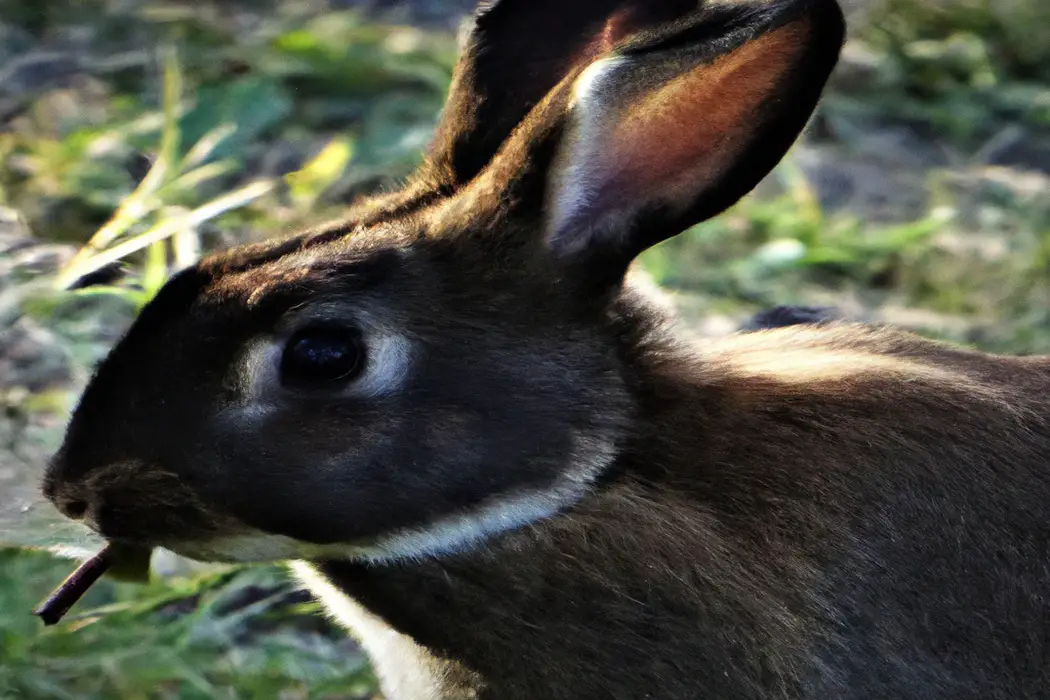
Factors to Consider Before Leaving a Rabbit Alone
Before leaving a rabbit alone, consider their age and health, temperament and behavior, as well as their previous experiences.
Rabbit’s age and health
When considering how long you can leave a rabbit alone, their age and health are important factors to take into account. Younger rabbits, like babies or adolescents, require more frequent care and attention than adult rabbits.
Additionally, rabbits with health issues or special needs may require extra care, including medication administration or specific dietary requirements.
It’s crucial to assess your rabbit’s age and health to ensure they receive the appropriate care and attention while you are away.
Rabbit’s temperament and behavior
Rabbits are generally social animals and enjoy human interaction.
They have different temperaments, with some being more outgoing and friendly, while others may be more reserved or shy.
It’s important to spend time with your rabbit to gauge their behavior and help them feel comfortable around you.
Rabbits are curious creatures and enjoy exploring their surroundings, so make sure to provide them with a safe and enriching environment.
Additionally, rabbits are habitual grazers and need access to fresh hay and water at all times.
Monitoring their eating habits can help you identify any potential health issues.
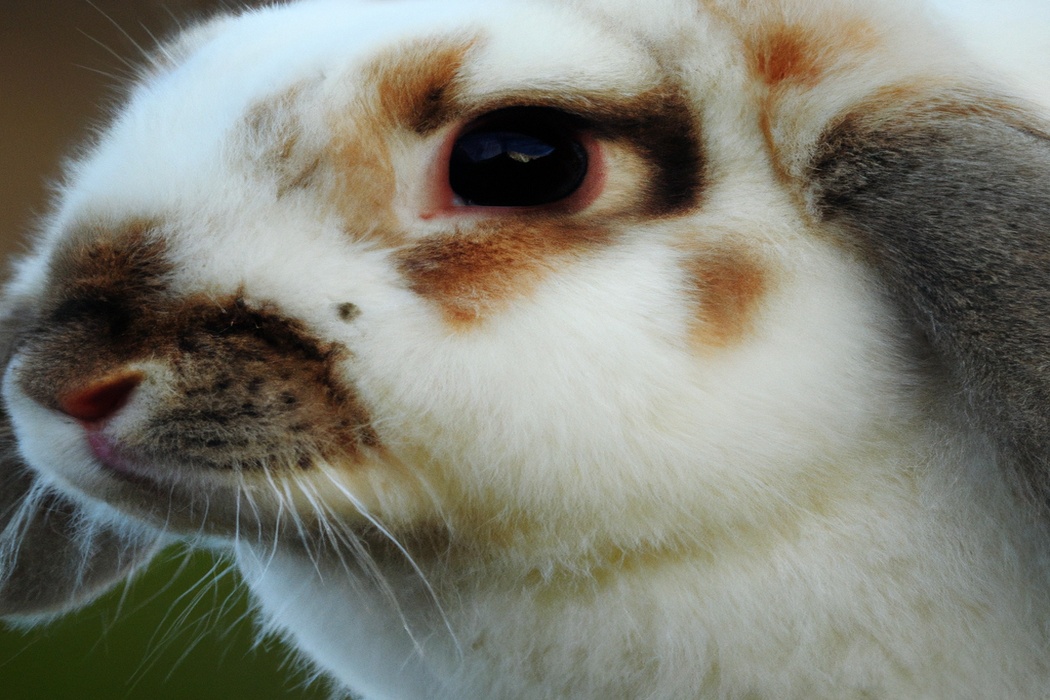
Rabbit’s previous experiences
Rabbit’s previous experiences play a significant role in determining how long they can be left alone.
If a rabbit has been previously left alone for extended periods of time and has adapted well, they may be able to handle longer periods alone.
However, if a rabbit has had negative experiences or shows signs of stress when left alone, it is best to limit the time they spend alone.
It is essential to consider their individual needs and behavior before deciding how long you can leave your rabbit alone.
Recommended Timeframe for Leaving a Rabbit Alone
The recommended timeframe for leaving a rabbit alone depends on various factors, such as their age, health, and personality.
It is important to follow guidelines for short-term absences and not leave them alone for too long to minimize risks.
Guidelines for short-term absences
For short-term absences, such as a day or two, rabbits can be left alone as long as their basic needs are met.
Make sure they have enough food, water, and hay.
Provide a safe and comfortable environment with a clean litter box.
Ensure they have toys or activities to keep them mentally stimulated.
If possible, ask a trusted friend or neighbor to check in on your bunny.
Ideal duration for leaving a rabbit alone
The ideal duration for leaving a rabbit alone depends on a few factors, such as their age and individual needs.
Generally, rabbits should not be left alone for more than 24 hours at a time.
However, it’s best to aim for shorter intervals, ideally no more than 12 hours, to ensure their safety and well-being.
If you need to leave your rabbit alone for longer periods, consider finding a reliable pet sitter or boarding facility to provide the care and attention your rabbit needs in your absence.
Risks of leaving a rabbit alone for too long
Leaving a rabbit alone for too long can pose several risks to their health and well-being. Rabbits are social animals that require regular human interaction and mental stimulation.
When left alone for extended periods, they may experience loneliness and boredom, which can lead to behavioral issues and depression.
Additionally, rabbits need a consistent supply of hay, fresh water, and a balanced diet, which may be compromised if they are left unattended. They are also vulnerable to accidents, injuries, and predators if left unsupervised outdoors.
Therefore, it is important to ensure that your rabbit receives regular care, attention, and companionship to prevent these risks.
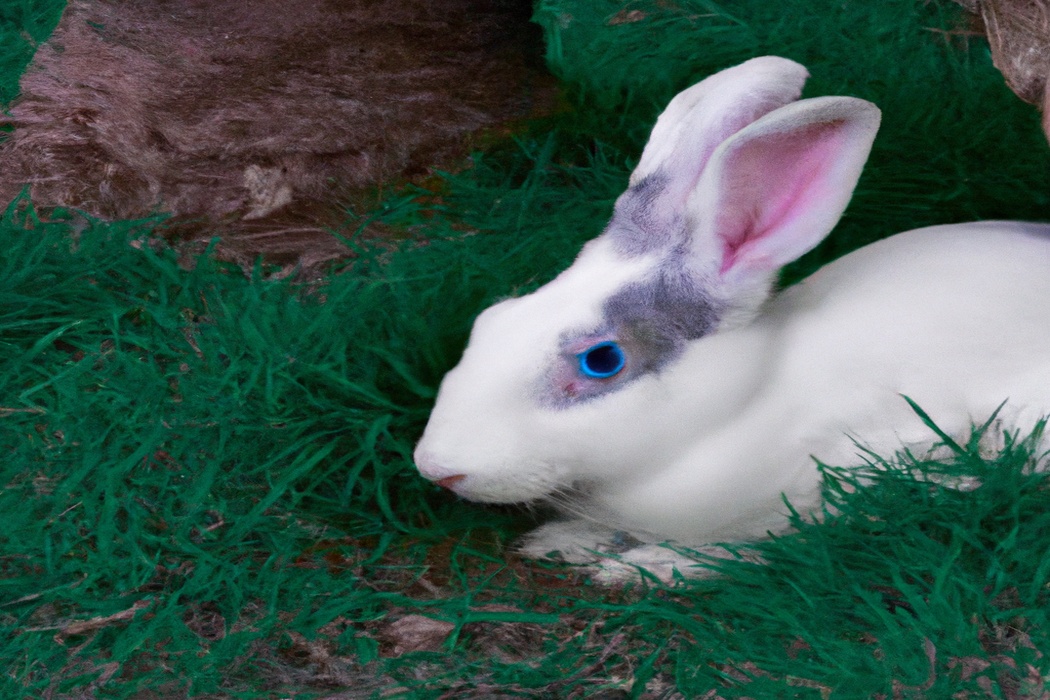
Preparing for Rabbit’s Alone Time
To prepare for your rabbit’s alone time, focus on rabbit-proofing the environment, ensuring ample food and water supply, and providing mental and physical stimulation.
Rabbit-proofing the environment
Rabbit-proofing the environment is essential to ensure the safety of your furry friend. Here are some steps you can take:
- Secure electrical cords: Rabbits love to chew, so make sure to cover or hide any exposed electrical cords to prevent accidents.
- Remove toxic plants: Some plants can be harmful if ingested by rabbits. Research which plants are safe and remove any toxic ones from your rabbit’s reach.
- Block off small spaces: Rabbits are curious creatures and can easily squeeze into small spaces. Block off any openings or gaps where your rabbit might get stuck.
- Keep fragile items out of reach: Rabbits like to explore and play, so make sure to remove any fragile or valuable items that your rabbit could knock over or damage.
- Provide appropriate chewing toys: Rabbits need to chew to keep their teeth healthy. Offer them safe, bunny-friendly chewing toys to redirect their chewing behavior.
Remember, every rabbit is different, so be observant and adjust your rabbit-proofing measures accordingly.
Ensuring ample food and water supply
When leaving your rabbit alone, it’s essential to ensure they have ample access to food and water. Here’s how you can do that:
- Provide a large water bottle or water bowl filled with fresh water. Check and refill it daily to ensure your rabbit stays hydrated.
- Offer a constant supply of fresh hay, which is crucial for their digestion. It also helps wear down their teeth, which continuously grow.
- Include a variety of fresh vegetables in their daily diet. Leafy greens like romaine lettuce, kale, and spinach are excellent options.
- Make sure your rabbit has access to their regular pellet food. This provides essential nutrients and should be given in moderation.
- Consider using puzzle feeders or toys that dispense food to keep your rabbit mentally stimulated during their alone time.
Remember to monitor your rabbit’s food and water intake to ensure they’re eating and drinking properly. If you’re going to be away for an extended period, it’s always a good idea to have someone check on your rabbit’s welfare.
Providing mental and physical stimulation
Rabbits need plenty of mental and physical stimulation to stay happy and healthy. Here are some ways you can provide this for your furry friend:
- Give them toys to play with, such as chew toys or puzzle toys that dispense treats. This will keep them entertained and mentally stimulated.
- Create an enriching environment by providing hiding places, tunnels, and platforms for them to explore. You can even set up an obstacle course for them to navigate.
- Regularly let your rabbit out of their enclosure to explore and hop around in a safe and supervised area. This will provide them with much-needed exercise and stimulation.
- Spend time interacting with your rabbit, whether it’s through gentle petting, grooming, or playing games like hide-and-seek. This will strengthen your bond and keep them mentally stimulated.
By prioritizing your rabbit’s mental and physical stimulation, you will ensure that they lead a happy and fulfilling life. Remember to always observe and understand your rabbit’s individual needs to provide the right level of stimulation for them.
Alternatives to Leaving a Rabbit Alone
If you can’t leave your rabbit alone, consider finding a rabbit-sitter or boarding your rabbit at a professional facility.
Finding a rabbit-sitter or pet sitter
If you need to find someone to take care of your rabbit while you’re away, there are a few options you can consider.
First, ask a friend or family member who is comfortable with rabbits if they can help out.
If that’s not possible, look for a pet sitter in your area who has experience with rabbits.
Make sure to meet and interview potential sitters before making a decision.
It’s important to find someone who is responsible, knowledgeable about rabbits, and able to spend enough time with your bunny.
Boarding a rabbit at a professional facility
If you’re going out of town and need someone to care for your rabbit, boarding them at a professional facility is a great option. At a boarding facility, your rabbit will receive proper care and attention while you’re away.
The staff are experienced in handling rabbits and will ensure that your furry friend is well-fed, has a clean living space, and gets some exercise.
Boarding your rabbit at a professional facility gives you peace of mind, knowing that they’re in capable hands while you’re gone.
Frequently Asked Questions
Can rabbits be left alone overnight?
Yes, rabbits can be left alone overnight, but you need to make sure they have everything they need to be safe and comfortable.
Make sure they have enough food and water, a clean litter box, and a secure area to stay in.
It’s also a good idea to check on them before you leave and when you return to make sure they are okay.
How can I prevent my rabbit from getting lonely?
To prevent your rabbit from getting lonely, you can:
- Spend quality time with your rabbit each day, offering attention, playtime, and interaction.
- Consider getting a companion for your rabbit, as they are social animals that thrive with a companion of their own kind.
- Provide your rabbit with plenty of toys and activities to keep them mentally and physically stimulated.
- Create a comfortable and stimulating living environment with hiding spots, tunnels, and safe areas for exploration.
- Ensure your rabbit has a consistent routine and daily exercise to keep them engaged and prevent boredom.
- Talk to your rabbit and provide gentle reassurance to help them feel secure and loved.
What are the signs of a stressed or lonely rabbit?
Signs of a stressed or lonely rabbit may include:
- Lack of appetite or sudden change in eating habits.
- Excessive grooming or fur pulling.
- Aggression or biting.
- Hiding or refusing to interact.
- Destructive behaviors, like chewing on furniture or digging excessively.
- Excessive sleep or lethargy.
- Overly alert or constantly on edge.
- Excessive or unusual vocalizations.
- Changes in litter box habits.
- Restlessness or pacing.
If you notice any of these signs, it’s important to provide your rabbit with companionship, environmental enrichment, and a calm, safe space.
How do I introduce a new rabbit to my current rabbit?
Introducing a new rabbit to your current one can be a delicate process, but with patience and careful planning, it can go smoothly.
Start by providing each rabbit with their own separate space to get comfortable and adjust to their new surroundings.
Then, you can gradually allow them to interact in neutral territory, such as a playpen, while closely supervising their behavior.
Monitor their body language and make sure there are no signs of aggression.
Slowly increase the amount of time they spend together, always being prepared to separate them if necessary.
Taking it step by step will help ensure a harmonious introduction.
Final Verdict
Understanding a rabbit’s social nature is crucial before deciding how long you can leave them alone.
Rabbits need companionship and social interaction for their well-being.
Factors such as age, health, temperament, and previous experiences should be considered before leaving them alone.
It is recommended to have short-term absences, ideally not exceeding a few hours, to minimize the risks of leaving a rabbit alone for too long.
Proper preparation, like rabbit-proofing the environment, providing ample food and water, and mental and physical stimulation, is essential.
If leaving a rabbit alone is not possible, alternatives like finding a rabbit-sitter or boarding at a professional facility should be explored.
Ultimately, the goal is to prevent loneliness and stress in rabbits, as they can negatively impact their health and behavior.

